Crop & Soil Science Spring 2025 Seminar Series
Join us for the Spring 2025 Seminar Series at 1pm on Mondays. The seminar series schedule is posted below for upcoming seminars. Seminars will be held in ALS 3005 with a Zoom option, you will receive a Zoom link once you have registered to attend. Please register in advance to attend the seminar.
Recorded Seminar presentations will be posted on this page as they become available. Click on the pictures below to access the seminar recordings.
April 7, 2025
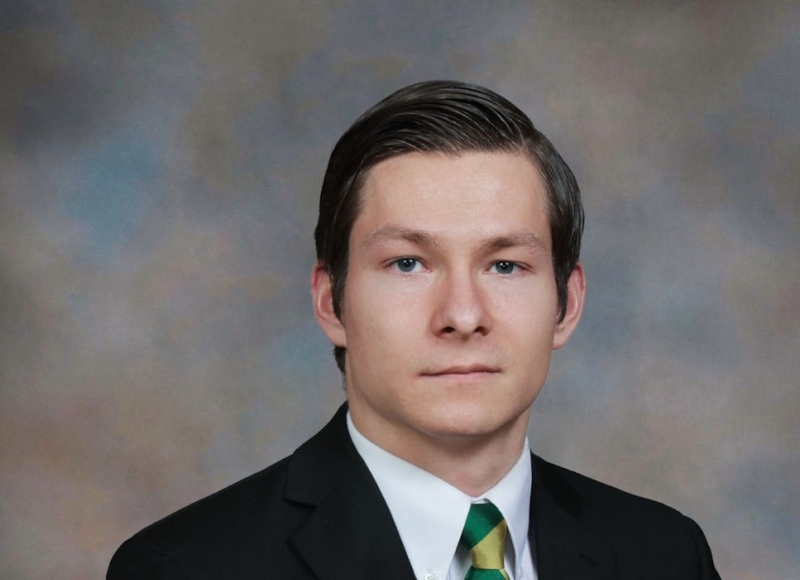
April 14, 2025
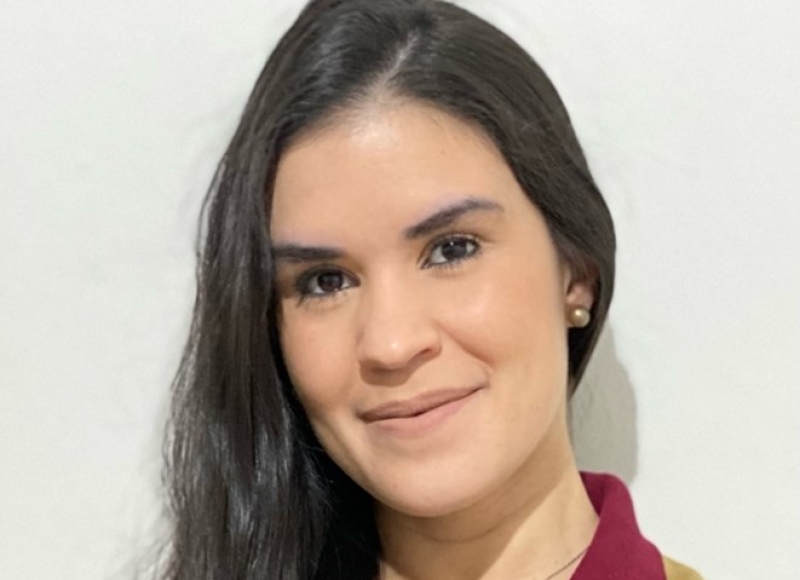
The effects of wildfire smoke exposure on beef cattle - Aline Santos, Animal Science Master's student - OSU
Bio: My name is Aline Santos, and I am a second-year master's student in Animal Science at Oregon State University. I am originally from Brazil more specifically I was born and raised in Campinas, which is a big city in São Paulo State. My research focuses on the effects of wildfire smoke exposure on beef cattle performance, behavior, and health and I am looking forward to sharing with you all!
April 21, 2025

High – Throughput Phenotyping of Early Generation Small Grains Breeding Lines to Indirectly Select for Grain Yield - Dalton Jones, Crop Science PhD student - OSU
Bio: Dalton Jones is a Ph.D. student in Crop Science working with Dr. Margaret Krause. Before coming to OSU, he completed an M.S. in Plant Science from Utah State University and a B.S. in Botany from Weber State University. In addition to schooling, he spent two years working as a research technician for the University of Montana, doing rangeland ecology monitoring across the Intermountain West. His research focuses on high-throughput phenotyping and genomic selection for early generation selection of yield and quality traits in wheat and barley.
April 28, 2025

The effect of Iris yellow spot virus on Onion thrips abundance, survival, and fecundity - Eileen Froshiesar, Crop Science Master's student - OSU
Bio: Eileen Froshiesar is a first year graduate student in the Crop Science program with a focus in Entomology. She earned her bachelor’s degree from Pacific University in Environmental Biology, and has been employed at the OSU Malheur Experiment Station for the past five years under Dr. Stuart Reitz in an entomology internship working with insects commonly found in onion, potato, and wheat production systems. For her master’s thesis research, she is evaluating the effects of an onion pathogen (Iris yellow spot virus) on the abundance, survival, and fecundity of an onion insect pest (onion thrips). The primary objectives of the research are to help growers better understand the relationship between Iris yellow spot virus and onion thrips, as well as to determine the effects of the virus on different onion thrips life stages and development.
May 5, 2025

Meet the new OSU Extension Organic Agriculture team
The Team: This new team of Extension Professors of Practice has six specialists including Shayan Ghajar (pasture and forages), Brigid Meints (grains and pulses), Shannon Cappellazzi (soil management), Lucas Nebert (seeds and planting stock), Todd Anderson (tree fruits and nuts) and Nick Andrews (vegetables). Cora Bobo-Shisler serves as their Outreach Coordinator. Beav.es/organic-ag
May 12, 2025

Soil Survey Field Operations and Activities in Oregon Localities Between 1975 and 2010 - Matthew Fillmore - Retired from USDA Soil Scientist
Bio: Matthew Fillmore attended Oregon State University (OSU) in Corvallis where he received B.S. degrees in Soil Science and Wildlife Science in 1976. He began his 37-year career with the USDA Soil Conservation Service in Oregon as a Soil Scientist in 1977 working in Linn County. In 1983 he was transferred to Baker County in northeastern Oregon. In 1987 he was promoted to Soil Survey Project Leader for the Curry County survey project in southwestern Oregon. In 1994 he moved back to Corvallis and was stationed in the Soil Science Department at OSU to begin the initial MLRA-based update for Oregon in Benton County. In 2008 he became the original MLRA Soils Office Leader for all of western Oregon based in Salem. He mapped over 1 million acres throughout Oregon and authored three soil survey manuscripts (Curry, Benton and Tillamook counties) during his career. He is one of the co-authors of the recently published book “The Soils of Oregon”. He retired from government service in 2013 and lives in Lebanon, Oregon.
June 2, 2025
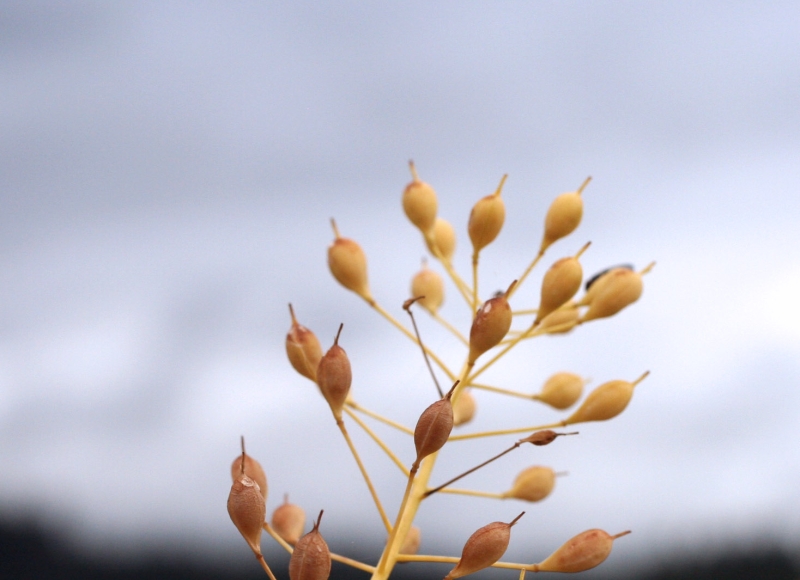
Examples of DEI efforts in CSS Research, Teaching, and Extension - Department of Crop and Soil Science DEI Committee
The DEI committee is pleased to host a seminar featuring several members of the CSS department. Each presenter will give a 3-minute flash talk about a way they have incorporated DEI efforts into their research, teaching, or Extension work. After the flash talks, we will open the room (zoom and in-person) for discussion about how all faculty, staff, and students can incorporate DEI efforts in their own work. We encourage people to come with their own examples or ideas to share. The goals of the seminar are to give members of the department ideas for how they might incorporate DEI into their own work and to begin drafting a CSS-specific document similar to the attached University-wide DEI guide that can serve as a long-term resource for our department.
January 13, 2025

Science communication, click bait or clandestine advertisement? - the challenge of getting complicated science across to the public
In October 2024, the New York Times published a feature with the title
“Changing the DNA of Living Things to Fight Climate Change”
Article link and accompanying video
In this article, the connections between nitrogen fertilization, seed technology, release of genetically modified microorganisms into the environment, and climate change are interlaced by references to jealous industrial moguls trying to suppress innovative science. The reader is sent off by quoting a scientist as saying: “Basically you have to pick here, greenhouse gas emissions or the use of a genetically modified organism".
But is this really so? In a nutshell, emerging technologies propose the use of genetically altered free living nitrogen fixing bacteria to partially meet crop nitrogen needs. There are many pro's and con's to be considered in any application of new technology, and that is definitely the case here.
On implementing new technology, one major consideration will always have to be: are the risks worth the benefits ? To give the public a chance to understand the issue and, ideally, participate in the necessary discussion and eventual decisions, it must be well informed. Many of us rely on "quality" media for the process of making science understandable for the general public. As we all know, that is not an easy task.
As members of CSS, we felt particularly touched by the topic, and spontaneously decided to go beyond the sensational title and apply a bit of scrutiny to the story and educate ourselves on the proposed technology. We plan to do this as follows:
At the January 13 Seminar, a brief presentation will provide needed context, recapitulating the scientific basics of
(i) Nitrogen fixation in general
(ii) Environmental effects of mineral fertilizers
(iii) Quantitative role of biological nitrogen fixation in plant nutrition
This event is meant to establish the factual basis behind the major assertions put forward in the article and give us all better context to dig into the pros and cons of the proposed technology.
January 27, 2025

Science communication, click bait or clandestine advertisement? - the challenge of getting complicated science across to the public
In October 2024, the New York Times published a feature with the title
“Changing the DNA of Living Things to Fight Climate Change”
Article link and accompanying video
In this article, the connections between nitrogen fertilization, seed technology, release of genetically modified microorganisms into the environment, and climate change are interlaced by references to jealous industrial moguls trying to suppress innovative science. The reader is sent off by quoting a scientist as saying: “Basically you have to pick here, greenhouse gas emissions or the use of a genetically modified organism".
But is this really so? In a nutshell, emerging technologies propose the use of genetically altered free living nitrogen fixing bacteria to partially meet crop nitrogen needs. There are many pro's and con's to be considered in any application of new technology, and that is definitely the case here.
On implementing new technology, one major consideration will always have to be: are the risks worth the benefits ? To give the public a chance to understand the issue and, ideally, participate in the necessary discussion and eventual decisions, it must be well informed. Many of us rely on "quality" media for the process of making science understandable for the general public. As we all know, that is not an easy task.
As members of CSS, we felt particularly touched by the topic, and spontaneously decided to go beyond the sensational title and apply a bit of scrutiny to the story and educate ourselves on the proposed technology. We plan to do this as follows:
On January 27, we intend to follow up with a town hall type discussion with a moderated Q and A format. The moderators will be Dr. Elizabeth Verhoeven and Dr. Markus Kleber. As panelists we have invited
(i) Dr. Ryan Mueller, Associate Professor of Microbiology, Department of Microbiology, OSU, to respond to questions regarding risk analysis for the release of genetically modified microorganisms into the environment
(ii) Dr. Yanni Ma, Associate Professor of Organizational and Environmental Communication, School of Communication, OSU, to help us understand the motives and possibly pressures acting on the author of this feature and insights on the difficulties of science communication in general
February 3, 2025
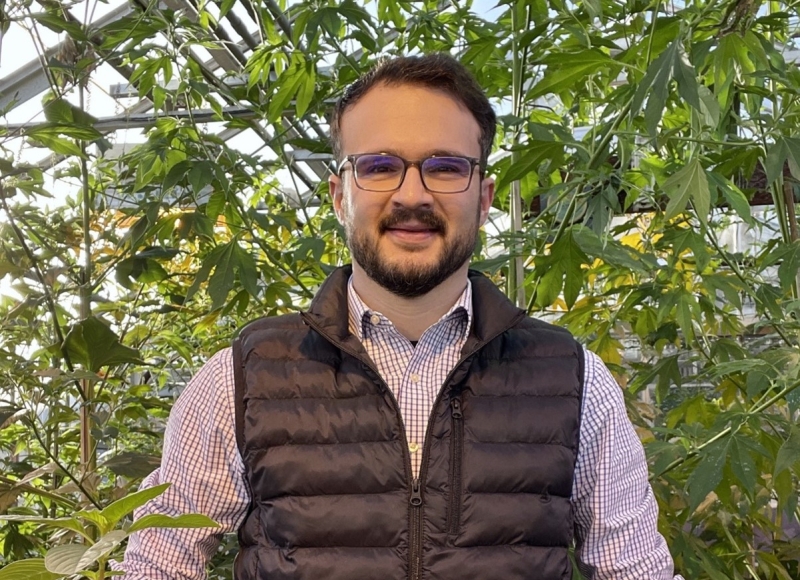
Waterhemp in Wisconsin Corn-Soybean Production Systems: Addressing a Critical Challenge with Cover Crops and See & Spray Technology - Dr. Rodrigo Werle, Associate Professor and Extension Cropping Systems Weed Scientist - University of Wisconsin-Madison
Bio: Dr. Rodrigo Werle is an Associate Professor and Extension Cropping Systems Weed Scientist at the University of Wisconsin-Madison, where he leads the WiscWeeds Research and Extension program. His program focuses on developing integrated weed management strategies for corn and soybean in Wisconsin’s agricultural systems. Originally from a small farming community of Dutch immigrants in southeastern Brazil, Dr. Werle’s early passion for agriculture inspired him to pursue undergraduate studies in Agronomy at São Paulo State University. He went on to earn both his MS and Ph.D. in Weed Science from the University of Nebraska-Lincoln.
February 10, 2025
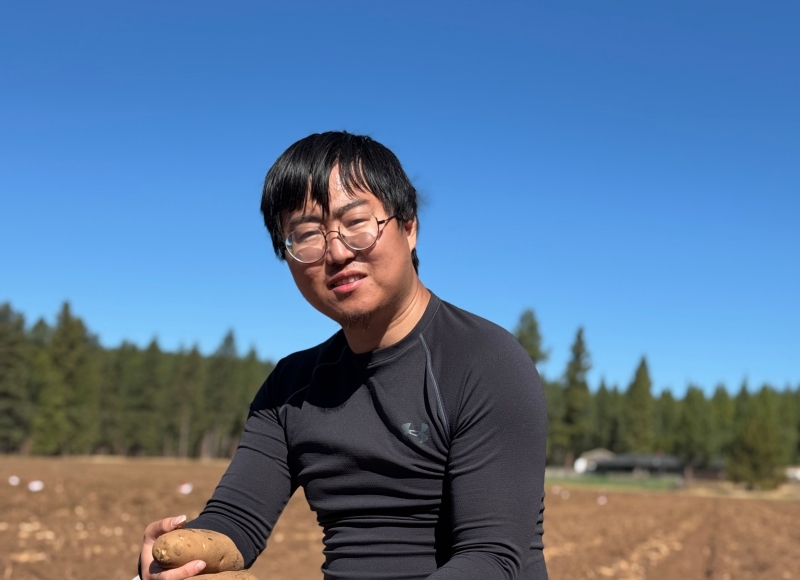
Contiguous draft genome of powdery scab pathogen Spongospora subterranea - Shengwei Hu, Crop Science PhD student - OSU
Bio:
I am a current PhD student in the Department of Crop and Soil Science. My research focuses on improving soil health by advancing our understanding of CRKN biology, developing diagnostic markers to differentiate between races of the pathogen, and generating enhanced potato germplasm resistant to CRKN.
February 24, 2025

Urban Soil Health and Management- Marissa Theve, Soil Scientist, USDA-NRCS
Bio: Marissa hales from rural Eastern Connecticut where she grew up playing in the woods and brook near her home. She earned a bachelor of science in environmental science and management from the University of Rhode Island, followed by a master’s of science in natural resources and the environment from the University of Connecticut. In grad school Marissa was hired full-time by the USDA-NRCS soil survey office in Tolland, CT, where she spent 6 years studying tidal marshes, helping finish urban mapping in New York City, and working on several subaqueous soil projects. Marissa moved to Salem, OR in 2016 to accept a position at the Bureau of Land Management where she worked for over 6 years helping decision makers make informed choices about timber sales, recreation activities, and restoration projects. Since 2023, Marissa has rejoined the USDA-NRCS as a resource soil scientist covering the wetland and highly erodible land program as well as the soil science outreach needs of the nine northwest counties of Oregon.
March 3, 2025

Over Coming the Barriers to Cover Crop use in Hazelnut Orchards - Chris Lessey, Soil Science MS student, OSU
Bio: My name is Chris Lessey and I am a second year master's student working on studying soil health in hazelnut orchards in the Willamette Valley. My project focuses on studying orchards with cover crops and comparing them to orchards with bare soil. We are studying microbial respiration, aggregate stability, carbon to nitrogen ratio, pH, EC, nut quality, pest pressure, soil temperature, soil moisture, water infiltration, and more! The goal of the project is to study orchards that are having success with cover crops to build a roadmap for other farmers to follow. We are focused on the soil and the effects cover crops have on the orchard.
October 7, 2024
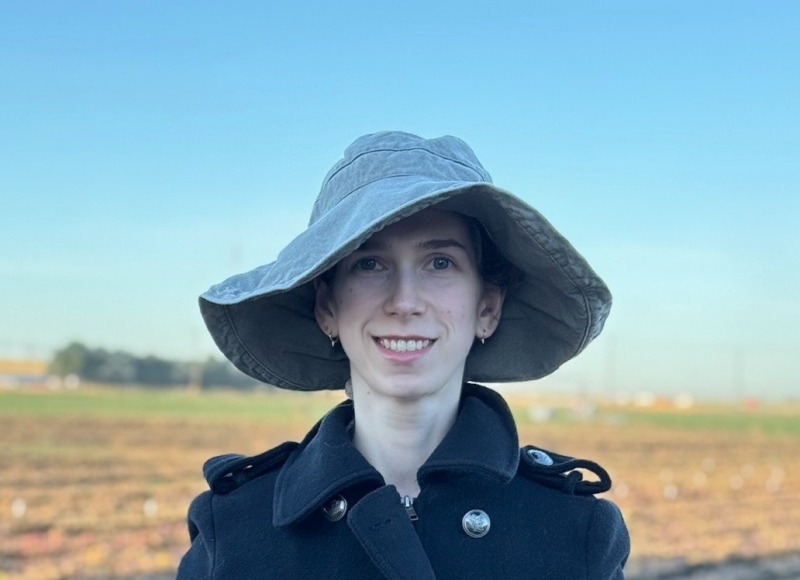
Characterization of Russet Potato Microbiomes - Holly Golightly, Crop Science MS student - OSU
Bio: Holly is an MS student in the OSU Crop Science program, with a focus in plant breeding and genetics. She completed her undergraduate studies at OSU in crop and soil science and sustainability. Her thesis project centers around how potato plant genetics and the potato microbiome can influence resistance to corky ringspot disease, which is caused by tobacco rattle virus (TRV) vectored by stubby root nematodes (SRNs).
October 14, 2024
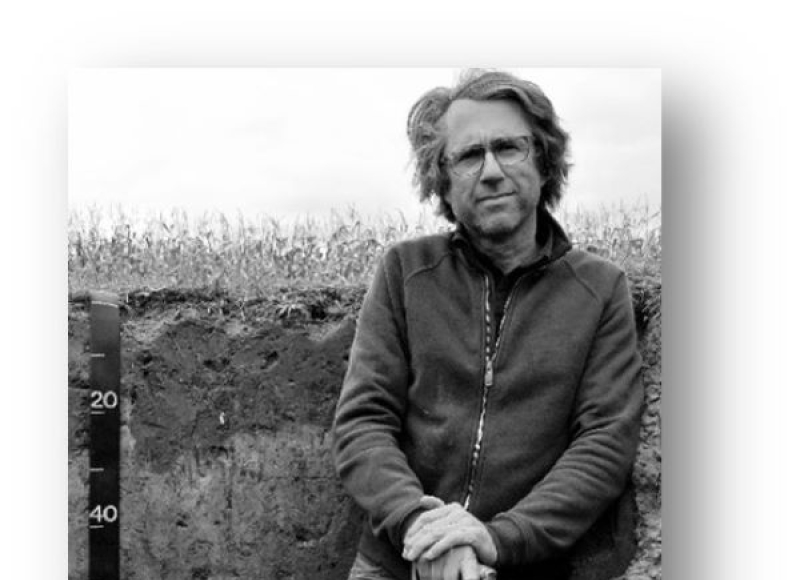
Soil carbon assessment in agroecosystems - Dr. Alfred Hartemink, Professor of Soil Science - University of Wisconsin-Madison
Bio: Dr. Alfred Hartemink is Professor of Soil Science at the University of Wisconsin – Madison. He has a MS and PhD degree in soil fertility and pedology from Wageningen University in the Netherlands and Reading University in the UK. At UW Madison, he teaches Pedology and Introduction Soil Science. His research focusses on digital soil morphometrics, soil mapping, and soil carbon in relation to real-world problems. He has developed the digital soil morphometrics discipline which transforms the way soil profiles are being studied and sampled. Prior to his current position, he was 12 years senior researcher at ISRIC–World Soil Information in the Netherlands, and coordinator of the GlobalSoilMap project. He has worked for 12 years as soil fertility expert and soil surveyor in Tanzania, DR Congo, Indonesia, Kenya, Australia and Papua New Guinea, and for shorter periods in several other countries. Alfred is SSSA Fellow, recipient of the SSSA Presidential Award, and an Honorary Member of the International Union of Soil Science (IUSS) and Dutch Society of Soil Science (NBV).
October 21, 2024

Advancing Infrastructure Resilience through Geochemical Simulations of Stabilized Soils - Dr. Pavan Akula, Assistant Professor, Civil and Construction Engineering - OSU
Bio: Dr. Pavan Akula is an Assistant Professor at Oregon State University, USA. His research focuses on developing advanced computational and experimental techniques for evaluating infrastructure materials. He received his Ph.D. in Civil Engineering from Texas A&M University in May 2020 and his Master’s in Civil Engineering from the National University of Singapore in December 2012. Prior to his Ph.D., he worked as a Geotechnical Engineer for AECOM. He is the committee communication coordinator and an active member of the Stabilization of Geomaterials and Recycled Materials at Transportation Research Board.
October 28, 2024
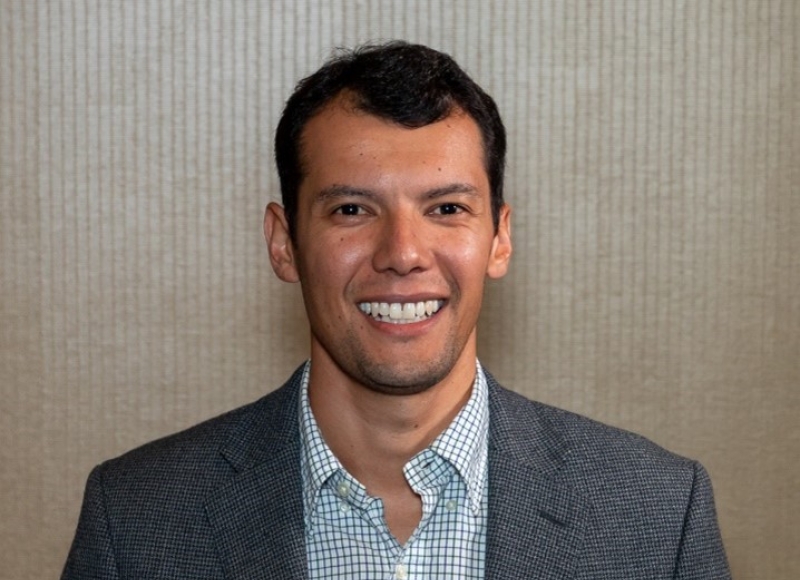
Establishing Strategic Weed Research and Educational Programs at Oregon State University - Dr. Victor Ribeiro, Assistant Professor and Extension Weed Specialist - OSU
Bio: Victor Ribeiro is an Assistant Professor and Extension Weed Specialist in the Department of Crop and Soil Science at Oregon State University. He earned his PhD in Crop Science from Oregon State University and gained experience as a research scholar in Weed Science at the University of Wisconsin-Madison prior to his doctoral studies. Victor's research interests include herbicide resistance in weeds, herbicide fate in the environment and non-target impacts, weed biology and ecology, and integrated weed management.
November 4, 2024
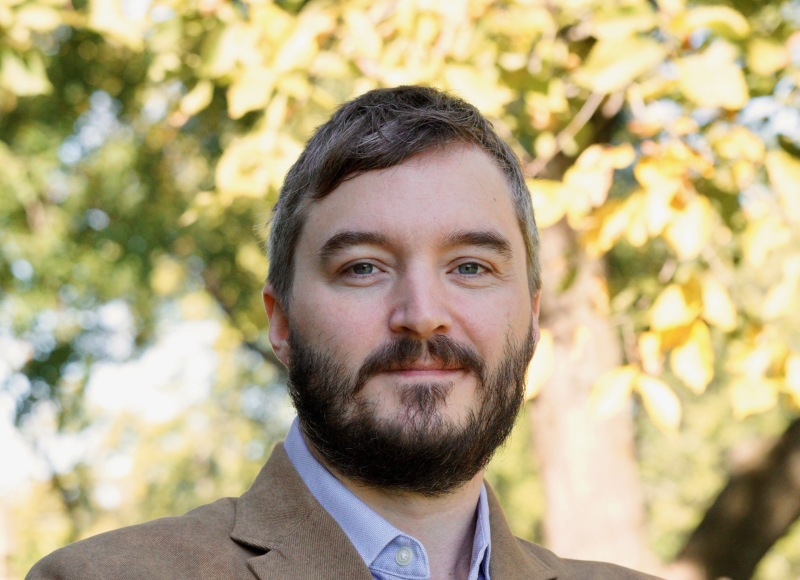
Redox Heterogeneity and Carbon Chemistry in Rhizosphere Soil - Dr. Jared Wilmoth, Assistant Professor - University of Maryland
Bio: Dr. Jared Wilmoth is an assistant professor at the University of Maryland, College Park, in the dept of Environmental Science and Technology (ENST). He broadly studies soil chemistry, including biogeochemistry and redox processes in soils, with emphasis on agricultural and wetland soils. Dr. Wilmoth leads the Soil Chemical Interfaces group in ENST. A current focus of the lab group is on redox dynamics and C transformations in soils under climate change in the US Mid-Atlantic. Before starting at UMD in 2020, Dr. Wilmoth worked as a postdoctoral soil scientist at Princeton University with the Carbon Mitigation Initiative and before that at Oak Ridge National Lab working on soil biogeochemistry and microfluidics. He received his PhD from the University of Georgia, Athens, in 2016.
November 18, 2024
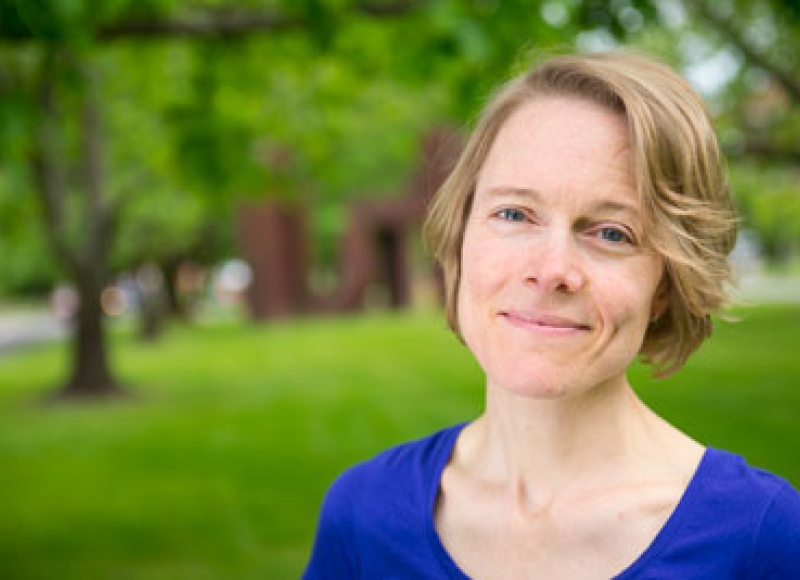
Evolution of a food systems center: From Small Farms to Regional Vitality - Dr. Lauren Gwin, Director - Center for Small Farms and Community Food Systems, Oregon State University
Bio: Dr. Gwin directs the Center for Small Farms & Community Food Systems, is the Extension Community Food Systems Specialist, and is an associate professor in the Crop & Soil Science Department. She provides leadership for a mosaic of programs and partnerships focused on sustainable and organic agricultural practices, and local and regional food systems. She also engages on these issues nationally: her extension and scholarship have shaped state and federal policy and practice, which has benefited many businesses and nonprofit organizations. Her PhD is in Environmental Science, Policy, and Management, from the University of California at Berkeley. Lauren gave her first CSS seminar almost exactly ten years ago, when she joined the department
November 25, 2024
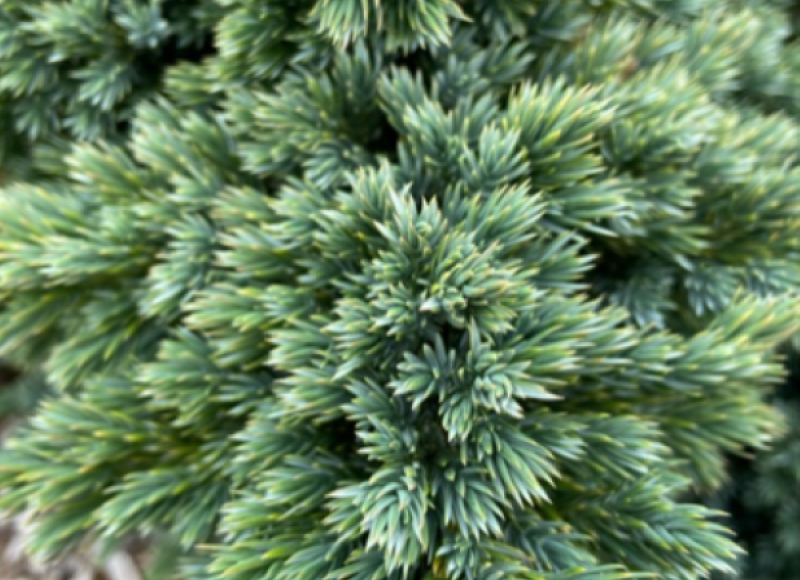
Podophyllotoxin in Juniperus and Related Species - Alhanouf Alzahrani - Crop Science MS student - Oregon State University
Bio: I am Alhanouf Alzahrani, a Master's student in Crop Science with a Bachelor's degree in Biology from the University of Jeddah, Saudi Arabia. My research focuses on bioprospecting chemicals for drug development, specifically podophyllotoxin in Juniperus species. Podophyllotoxin, found in some Juniperus species, is a bioactive compound with significant pharmaceutical potential. It's known for its anticancer properties. My research into podophyllotoxin in Juniper species is exciting because it could provide a more sustainable source for drug development.
December 2, 2024
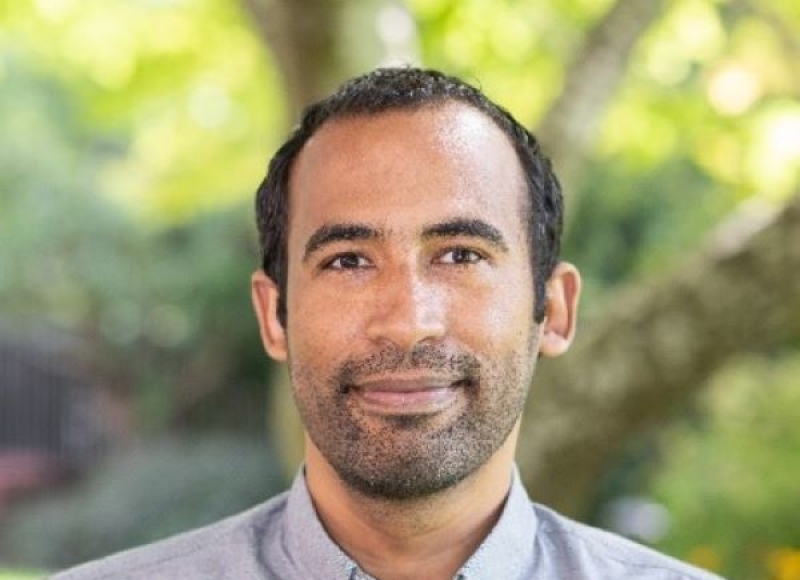
Exploring biochar opportunities to promote circular economy - Dr. Islam Hafez, Assistant Professor, Wood Science - Oregon State University
Bio: Islam Hafez is an assistant professor at the Department of Wood Science and Engineering at Oregon State University. He received his PhD in Bioproducts Engineering from the University of Minnesota. He was a postdoctoral researcher and research assistant professor at the School of Forest Resources at the University of Maine. The broad context of his work looks at the structure-process-property relationships of bio-based composites and adhesives. He is particularly interested in the design and manufacturing of composites and the scale-up of promising products and technologies.
April 1, 2024

How international experiences contribute to a role in IPM Education - Thomas Jima, Integrated Pest Management (IPM) Educator at the Oregon IPM Center
Bio: In 2023, Thomas A. Jima joined Oregon State University – Oregon IPM Center as an Integrated Pest Management (IPM) Educator. Thomas holds an M.S. in Plant Biology specializing in Plant Pathology and M.S. in Entomology, with a B.S. in Plant Sciences. Thomas has over 10+ years of international experience as a specialist advisor focused on agricultural development, research, project management, capacity building, and clientele management with an emphasis on Plant Protection and IPM. Thomas enjoys learning new things, seeking new opportunities, and becoming proficient at his job. Thomas works independently but gets motivated by teamwork. In his free time, Thomas enjoys being outdoors with his kids hiking and playing sports.
April 8, 2024

High-throughput plant phenotyping technologies towards improving crop breeding efficiency - Dr. Jing Zhou, Assistant Professor of Precision Agriculture - OSU
Bio: Jing is an Assistant Professor in the Department of Crop and Soil Science at the Oregon State University. Jing earned his Ph.D. degree in Biological and Agricultural Engineering at the University of Missouri-Columbia. Jing worked as a postdoctoral research associate in the Digital Agriculture Lab at the University of Wisconsin-Madison. Jing’s research focuses on providing solutions for forming a sustainable food and agricultural system with emerging technological and computational resources.
April 15, 2024

EPSPS Copy Number Variation is Correlated with Glyphosate Resistance in an Italian Ryegrass Population - Victor Ribeiro, Crop Science PhD student - OSU
Bio: Victor's early passion for weed research led him to join Oregon State University for a Doctoral Degree in Weed Science. Currently, Victor is a Ph.D. candidate in the Crop Science graduate program under Drs. Carol Mallory-Smith and Judit Barroso, and his research is focused on herbicide resistance in downy brome (Bromus tectorum L.) in wheat production systems in Eastern Oregon. Victor's interests in Weed Science are very broad, ranging from applied weed research, where he is interested in understanding growers’ practices and factors affecting their decisions, to basic research including weed biology and ecology and, molecular mechanisms of herbicide resistance in weeds.
April 15, 2024

Integrating unmanned aerial system (UAS) imagery with ground-based spot spray application technology - Dr. Pete Berry, Assistant Professor of Weed Science - OSU
Bio: Pete's journey has come full circle, starting with the completion of his PhD at Oregon State University under Dr. Carol Malloy-Smith. He then ventured to Central Illinois, where he worked for Syngenta as a field scientist. In the fall of 2022 Pete returned to OSU as an assistant professor in the Department of Crop and Soil Science. Pete's program focuses on integrating GIS technologies into weed science. His current projects span mapping resistant weed populations across the PNW, quantifying weed populations using drone imagery, employing image classification for weed recognition in Oregon cropping systems, investigating spectral variation among weeds and crops and utilizing spot spray technology.
April 22, 2024

My journey as a seed scientist and other tales - Dr. Thomas Chastain, Department Head and Professor of Seed Crop Physiology and Ecology - OSU
Bio: Thomas Chastain is Department Head and Professor of Seed Crop Physiology and Ecology in the Department of Crop and Soil Science at Oregon State University. He earned a B.A. in Biological Sciences from California State University, Chico, and M.S. and Ph.D. in Crop Science from OSU. Dr. Chastain’s research and teaching efforts over the past 35 years at OSU have focused on the physiology, ecology, and management of seed crops.
April 29, 2024

Investigations into the Influence of Essential Oils on the Inhibition of Seed Germination Rate, Seedling Height, and Radical Length in Barley and Wheat - Luluh Aljayan, Crop Science MS student - OSU
Bio: Luluh is a masters student in crop science with a background in public health. She is passionate about combining sustainable farming and health to find natural solutions for agricultural problems. She is especially interested in how plants and essential oils can help crops grow better and fight pests in a way that's good for the environment and our health.
April 29, 2024

Toxicity of essential oils to the pests Arion circumscriptus (Gastropoda) in laboratory and greenhouse trials - Fares Alzahrani, Crop Science PhD student - OSU
Bio: Fares Alzahrani is from Saudi Arabia, with an undergraduate degree in zoology and a Master’s in Crop Science with an entomology focus from Oregon State University, obtained in 2019. This spring, he is completing his Ph.D. in the same field, guided by Dr. Rory McDonnell. His research targets the control of slugs and moth pests with essential oils, aiming to offer sustainable pest management solutions.
May 6, 2024
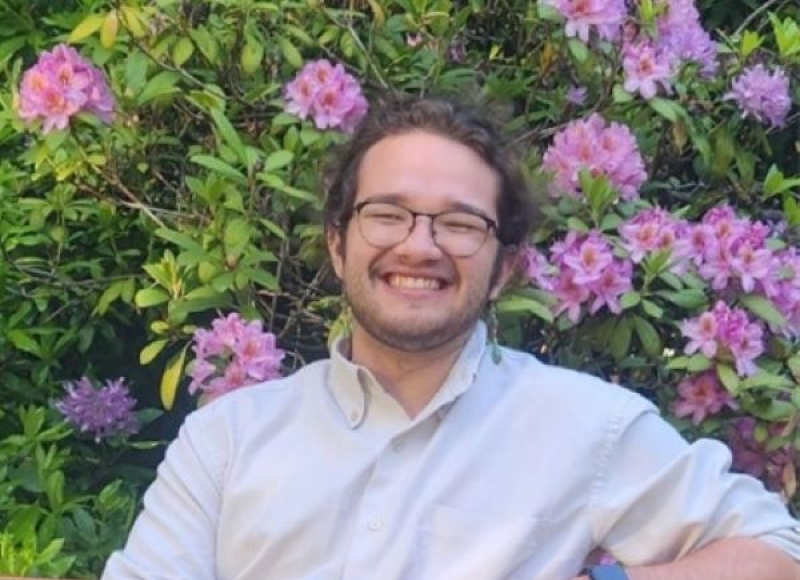
The Impact of Pacific Northwest Soil Properties on N Mineralization of Dairy Manure - Ryan Auld, Soil Science MS student - OSU
Bio: Ryan is a graduate student working towards a master’s degree in Soil Science. After completing an undergraduate thesis focused on in-situ nitrate monitoring, Ryan knew he wanted to focus on nitrogen in his academic career. As a graduate student, Ryan has focused on extension research, including his thesis which investigates the relationship between soil properties and nitrogen mineralization of dairy manure in the Pacific Northwest. Outside of the nitrogen cycle, Ryan is also very passionate about laboratory analyses and loves learning new techniques he can apply to his research. After earning his master’s degree, Ryan hopes to continue onto a Ph.D. program in Soil Science with the eventual goal of becoming a professor.
May 6, 2024

Do soil properties control N-cycling in forest stands of the Pacific Northwest? - Dandan Zhang, Soil Science PhD student - OSU
Bio: Dandan’s interests in soil microbiology led her to join Oregon State University for a Doctoral Degree in Soil Science. Dandan used to be a Ph.D. candidate in the Soil Science graduate program under Dr. David Myrold and is currently under Dr. Markus Kleber. Her research is focused on protease activity in soil under N-fixing tree species vs non-N-fixing tree species in forest ecosystems. She also is interested in metagenomic sequencing and data analysis.
May 13, 2024

Ammonia Volatilization Potential from Surface-applied Anaerobically Digested Dairy Manure - Corinne Butler, Soil Science MS student - OSU
Bio: Corinne’s love for soil was discovered during her undergraduate career at UC Davis. This led her to pursue her master’s degree at Oregon State University. Corinne is currently working with Dr. Amber Moore in the Soil Science graduate program. Her research is focused on ammonia volatilization from surface-applied anaerobically digested dairy manure in a lab setting. Corinne has many interests in Soil Science and Agronomy, including soil fertility, nutrient management, crop production, and applied agricultural research that will directly help growers in real-time.
May 13, 2024
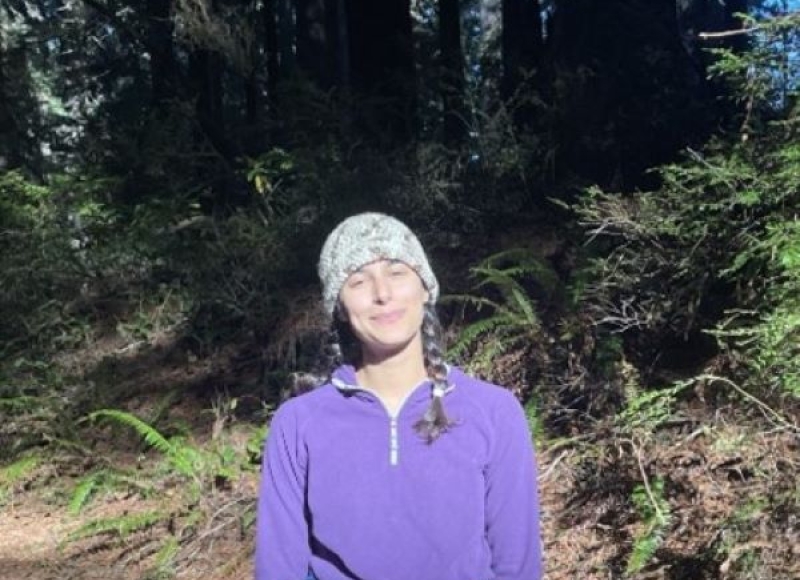
Susceptibility of Endemic Snails Vespericola columbianus and Ancotrema sportella to Parasitic Nematode Phasmarhabditis californica - Indira Kulkarni, Crop Science MS student - OSU
Bio: Indira is a Crop Science Master’s student studying the non-target effects of novel biological control on endemic terrestrial gastropods in the Pacific Northwest with Prof. Rory McDonnell. She is originally from Wappingers Falls, NY and attended the University of Vermont for her undergraduate degree in Neuroscience. She became interested both in ecology and conservation when she moved out to Oregon and led a crew for the Northwest Youth Conservation Corps, working and living outside. She decided to return to graduate school to pursue her interests in gastropod and insect species preservation and has enjoyed learning about the many facets of this field since diving in.
November 6, 2023
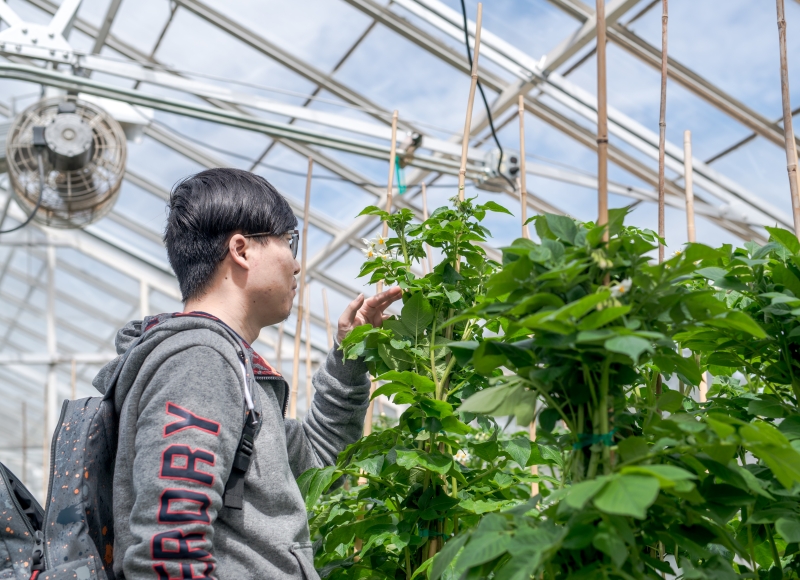
Introgression and marker-assisted mapping for Columbia root-knot nematode (CRKN) resistance in potato - Shengwei Hu, Crop Science PhD Student
November 13, 2023
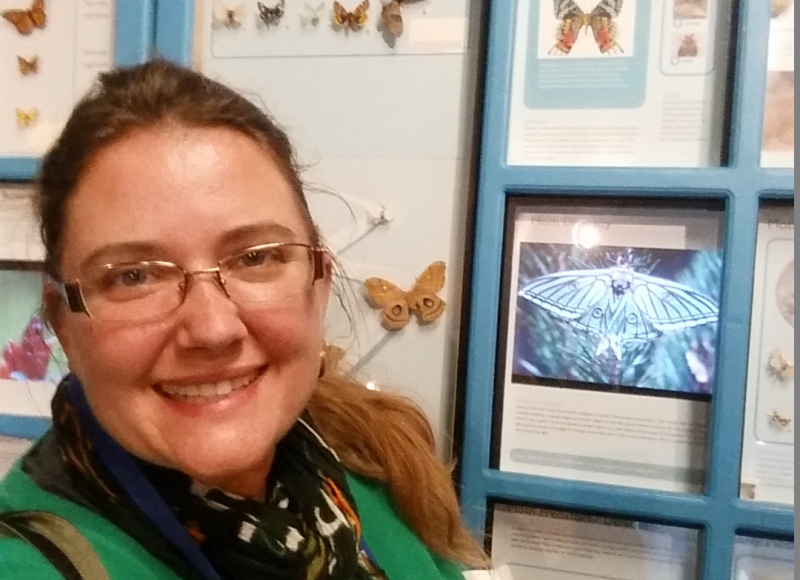
Improving the toolbox for integrated management of field bindweed - Jessica Green, Crop Science PhD Student
November 20, 2023

Runoff, rangelands, & ruminants: quantifiying the water quality impacts of agricultural manure application in Oregon - Pierce McClendon, Water Resources Master's student
November 27, 2023

Dr. Rob Wiedenmann
April 24, 2023
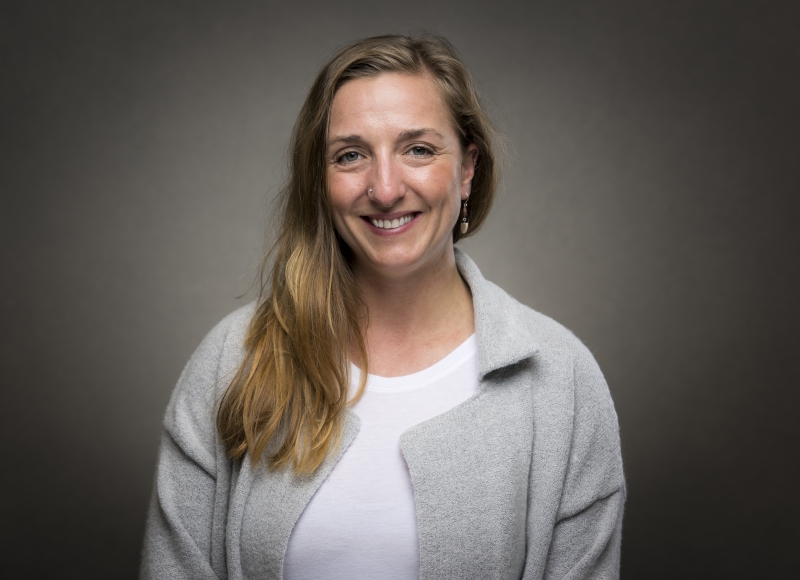
Drought and Heat Pressures in Oregon Agriculture- A Statewide Needs Assessment - Berit Dinsdale, Postdoctoral Scholar, OSU
May 8, 2023

Areej Abdullah Alzarqaa - Crop Science PhD Student
May 15, 2023
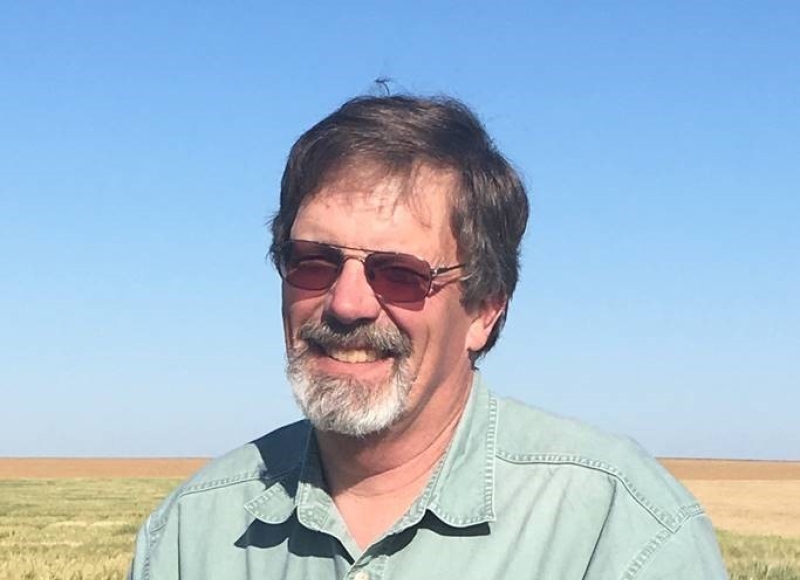
What I did on my summer vacations – for 40 years - Dr. Bob Zemetra, Professor Wheat Breeding and Genetics OSU
May 22, 2023
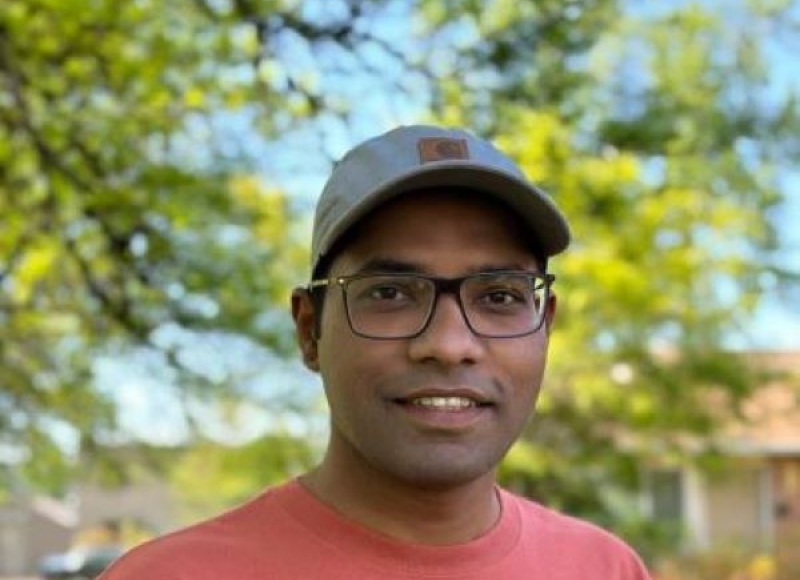
Potato dihaploids: pre-breeding for diploid hybrid - Hemant Kardile, Crop Science PhD Student
June 5, 2023
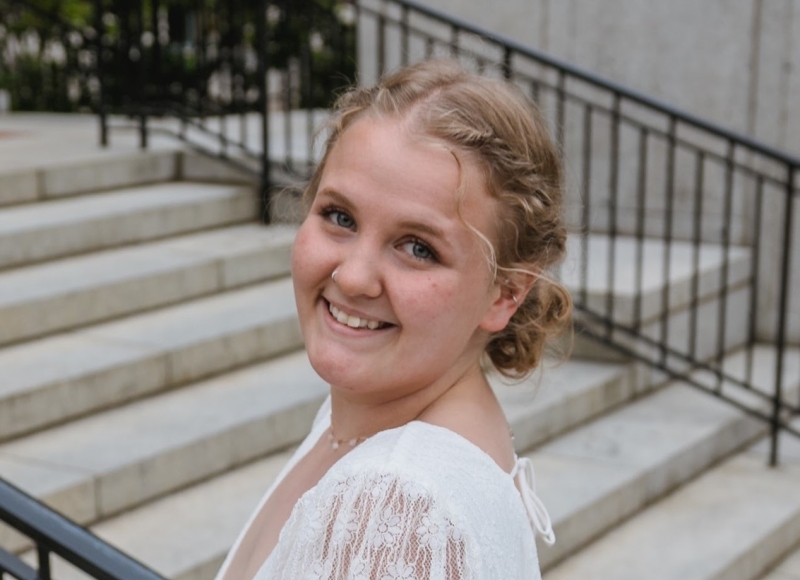
Calcium source and placement strategies for addressing soil acidity in no-till wheat - Sahalie Ellickson, Soil Science MS Student
Bio: Sahalie Ellickson is a current masters student in soil science with advisor Dr. Amber Moore and this is her third term in the program. She is a native Oregonian and completed her B.S. here at Oregon State in Environmental Sciences in 2021 with a focus on agriculture. In her undergrad she worked with the wheat research and breeding program also here at OSU which has helped support and direct her towards the field topics of soil fertility and agronomy.
June 5, 2023

Alfalfa Fertility Survey of the Pacific Northwest - Casey Messman, Soil Science MS Student
Bio: Casey was born and raised in Eugene Oregon. He earned his bachelor’s degree in Agriculture Science at Oregon State University. He has 5 years’ worth of agricultural experience working with a wide variety of crops such as hops, caneberries, organic vegetables, wheat, and alfalfa. For his master’s in soil science, he is conducting an alfalfa fertility survey for the Pacific Northwest.
October 3, 2022
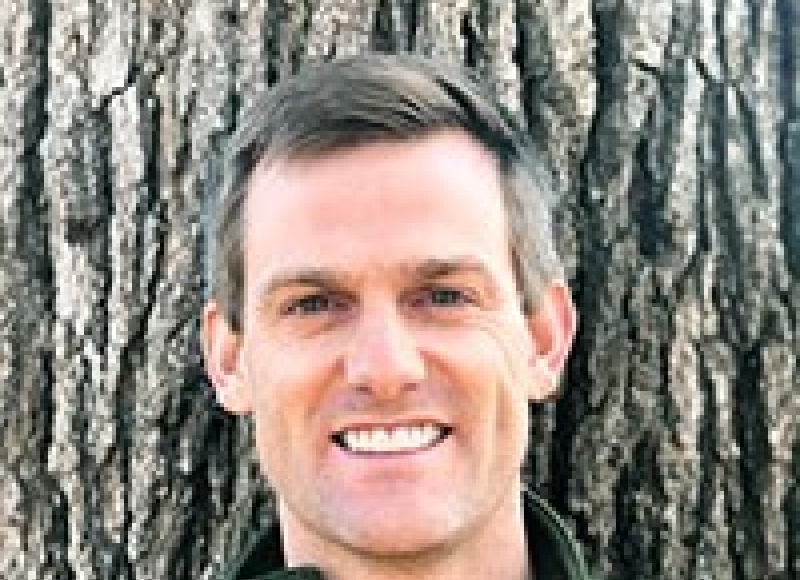
Utilizing GIS Technologies in Weed Science - Dr. Pete Berry, Assistant Professor Weed Science OSU
October 10, 2022
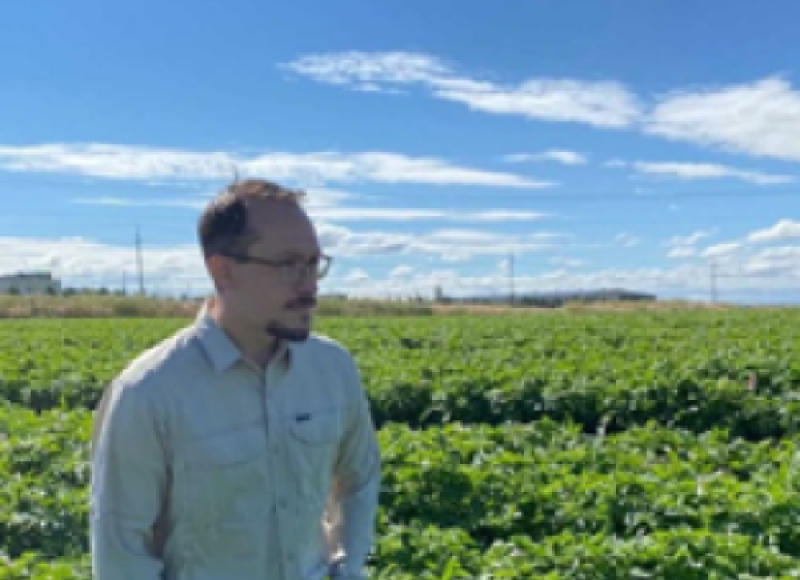
Evaluating Chemical Elicitors of Plant Defense Responses Against Insect Pests of Potato - Alexander Butcher, Crop Science Masters Student
October 10, 2022
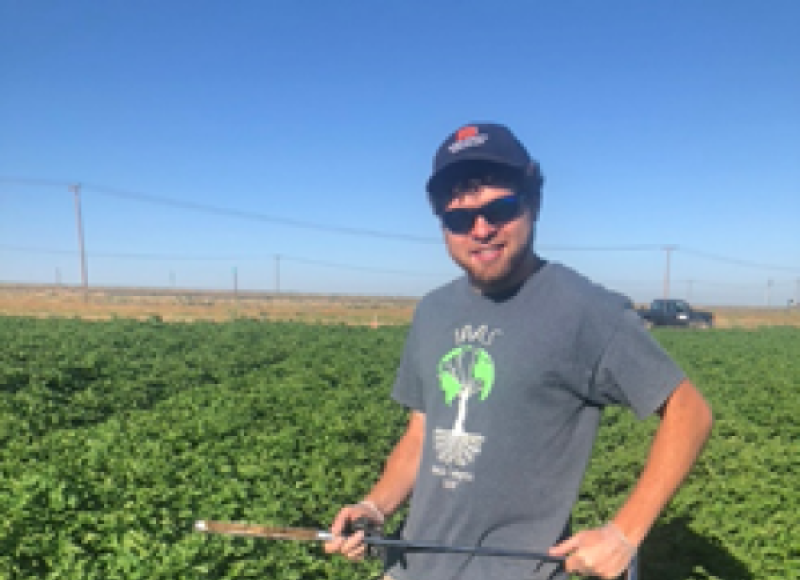
Evaluation of Potassium Fertilization on the Yield and Quality of Different Potato Varieties - Jack Pieper, Crop Science MS Student
October 17, 2022
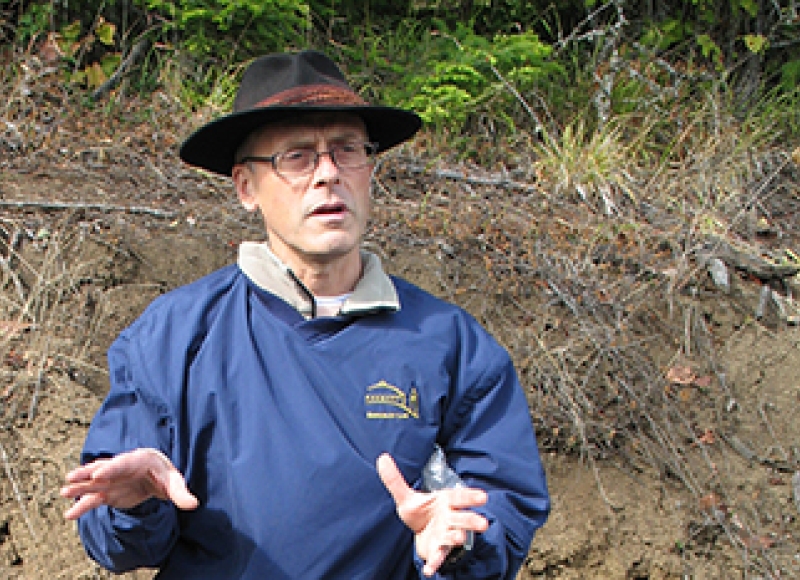
Assessing Soil Quality - Dr. Markus Kleber, Professor Soil Science OSU
October 24, 2022

Field and Lab Analysis in Four Oregon Agricultural Soils: A Summary of Findings from SOIL 512 and 514 - Summer SOIL 512/514 Class Presentation: Heidi Noordijk, Jack Pieper, Casey Messman, Jen Valentine, Amanda Cox and Robert Laurie
October 31, 2022
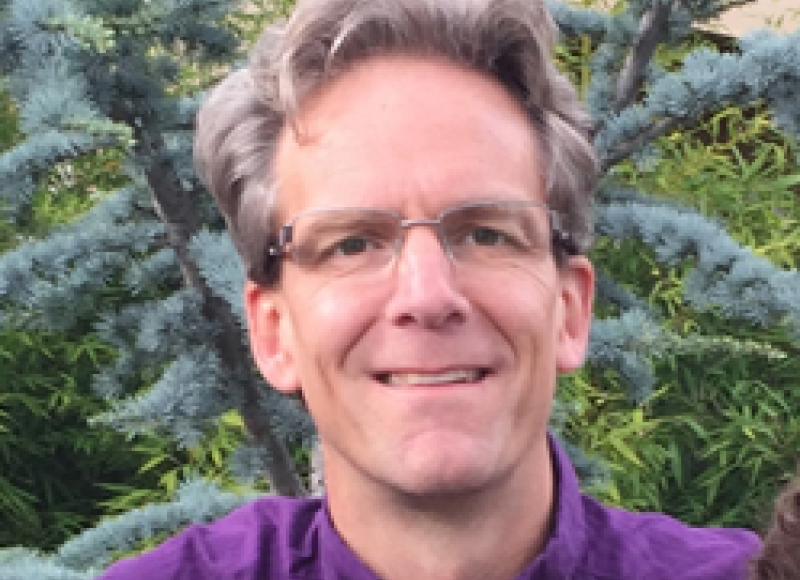
Parallel Lives: 1) Aphid Taxonomist/Natual Historian and 2) Research Coordinator/Science Advisor to the Northwest Potato Industry - Dr. Andy Jensen, Manager, NW Potato Research Consortium
November 7, 2022

Recombining Genomics and Alleles of Adaptive Traits in Barley - Dr. Eyal Friedman, Plant Sciences Institute Volcani Agricultural Research Organization (ARO), Isreal
November 14, 2022

Engaging and Educating Policy-makers: What I Learned as a SEED Ambassador - Dr. Brigid Meints, Assistant Professor OSU
November 14, 2022
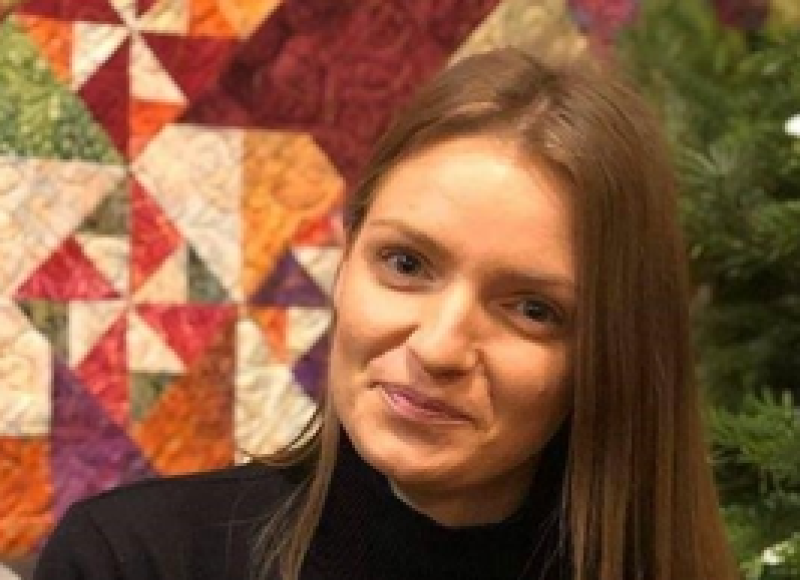
Multiple Utilization of Hemp - Jelena Viskovic, Crop Science PhD Student
November 21, 2022
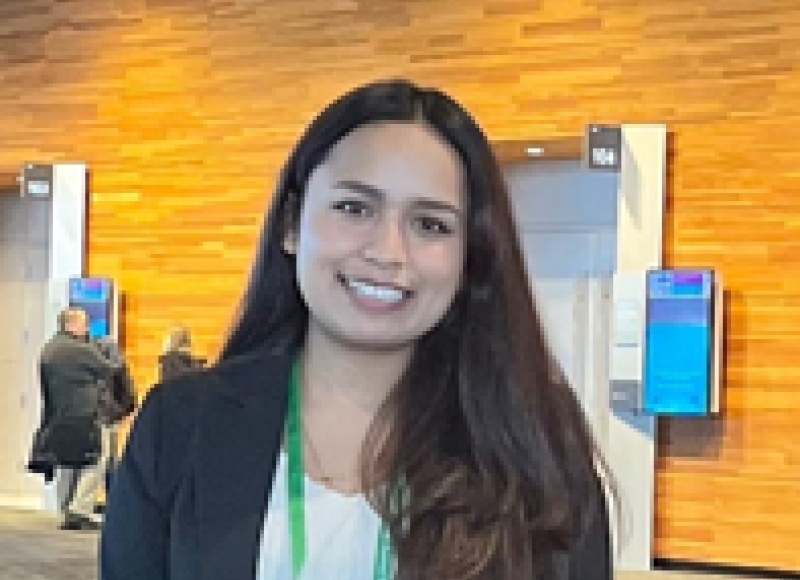
Improving Management of Clover Seed Weevil in White Clover Seed Production System in Oregon - Grace Tiwari, Crop Science MS Student
November 21, 2022
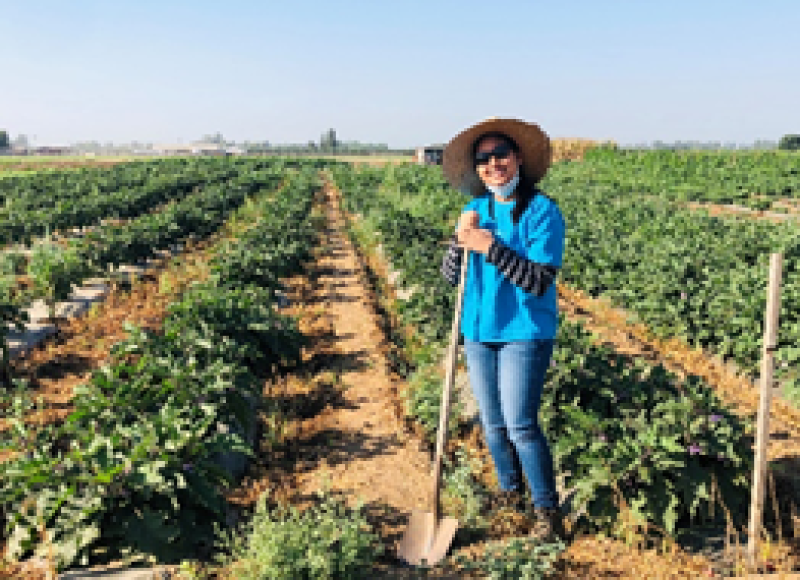
Evaluating Cover Crop Options in Columbia Basin of Oregon - Samikshya Budhathoki, Soil Science MS Student
November 28, 2022

Essential oils for inhabiting sprouts in stored potatoes - Hanin Almutairi, Crop Science PhD Student
November 28, 2022

Essential oils as inhibitors of potato tuber sprouting in storage - Areej Abdullah Alzarqaa, Crop Science PhD Student
December 5, 2022
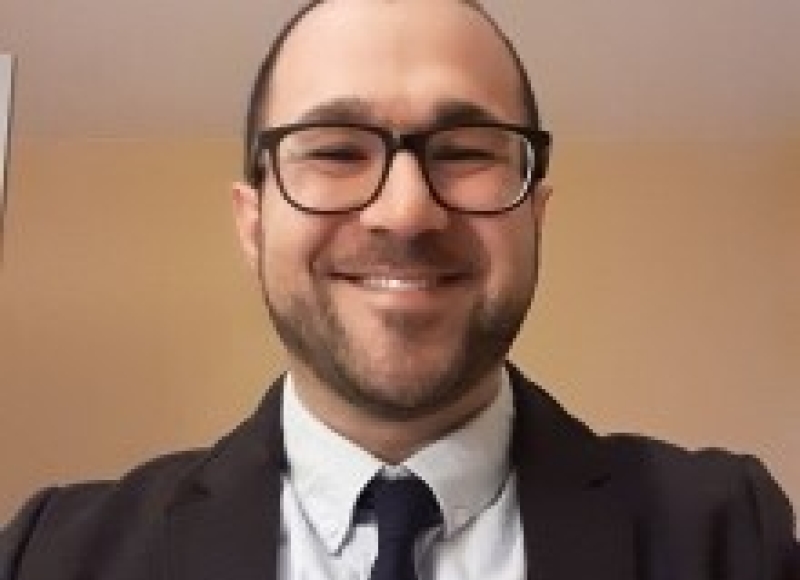
How Wild Potato Species Can Change the Strategies in Managing Colorado Potato Beetle - Nima Samadirad, Crop Science PhD Student
December 5, 2022

Soil Disturbance and Microbial Community Shifts in Soils of the Willamette Valley - Cesar Zamora, Soil Science MS Student
September 27, 2021
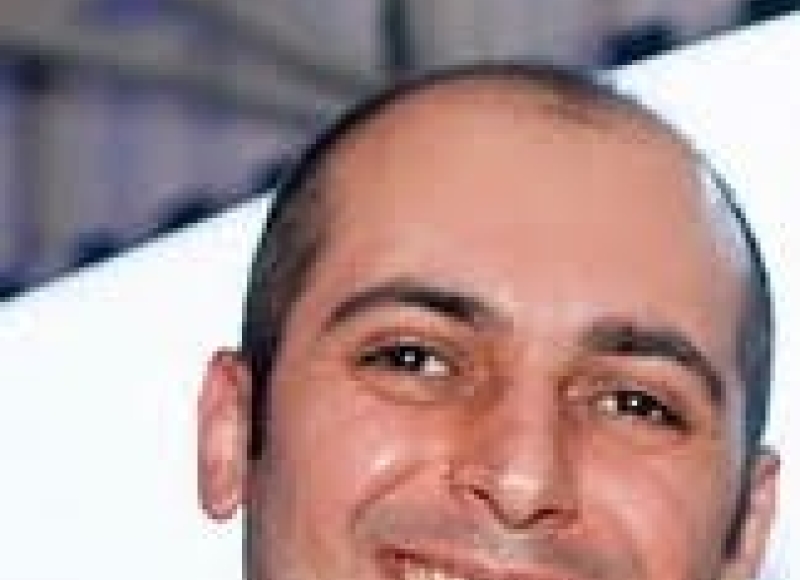
Understanding the Soil Hydrophysical behavior for Sustainable Expansion of Reuse Water Irrigation in Umatilla Basin - Dr. Amin Nouri, Oregon State University.
October 11, 2021

Policy and Programs to Advance Climate Resilience on Oregon’s Agricultural Lands - Oregon Agriculture & Climate Network
October 18, 2021

A Career in Ag Exports - the view from the PNW - Don Schilling and Jordan Miller, Wesco International
October 25, 2021

Modeling pest distributions, phenology, and population dynamics to safeguard US agricultural lands - Dr. Brittany Barker Presentation Slides
November 8, 2021

Romp of Otters - Potential for "Updated" Heirloom Barley Varieties and Impact on Base Malt and Beer Flavor - Campbell Morrissy, Crop Science PhD Student
November 15, 2021

Slashin' and Thrashin' - Characterizing Breeding Traits for Organic Naked Barley - Cristiana Vallejos, Crop Science MS Student
November 15, 2021

The Foliar Application of Microcutrients for Disease Control of Zymoseptoria Tritici Blotch in Wheat - Jackson Smith, Crop Science MS Student
November 22, 2021

Characterization of changes in soil micro-structure: Agricultural and Environmental Implications - Dr. Maoz Dor, Postdoctoral Fellow Oregon State University
Maoz Dor is a postdoctoral fellow in Dorthe Wildenchild's group at Oregon State University's School of Chemical, Biological, and Environmental Engineering. He received His MSc and PhD in Soil Science from the Hebrew University of Jerusalem, Israel. The focus of Maoz's research is the complex interaction of chemical, physical, and biological mechanisms affecting soil structure formation and deterioration.
November 29, 2021

Estimating Carbon Stocks in Tall Fescue Grass Seed Fields - Dr. Martina Gonzalez Mateu
Seasonal Application Timing Effects on the Plant Availability of Elemental Sulfur-based Fertilizers - Amanda Cox, Crop and Soil Science MS Student
December 6, 2022

Hemp Micropropagation Using Alternate Growing Medium Componets and Comparison of Plant Vigor Outcomes by Genotype in Tissue Culture and in the Greenhouse - Margaret Halstead, Crop Science MS Student
January 24, 2022
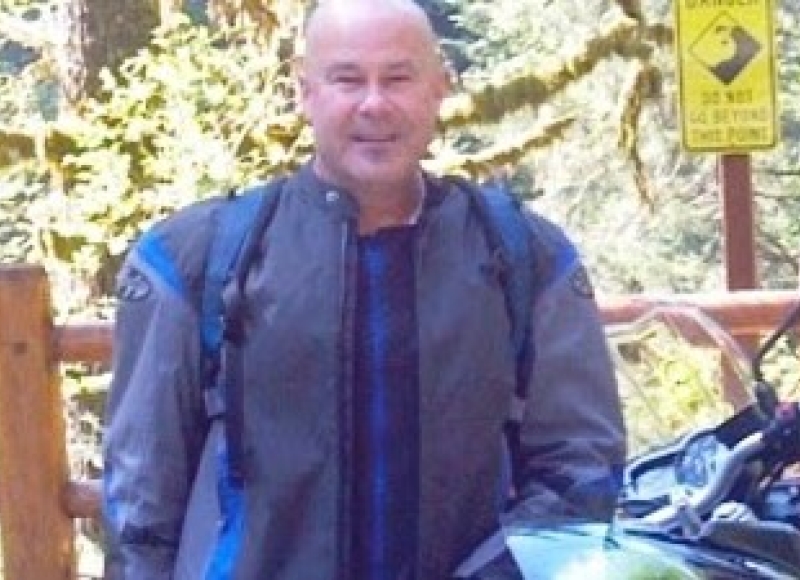
The Draft Psuedo-Chromosomal Scale Hop Genome and Applications in Plant Breeding - John Henning, USDA-ARS
Bio: https://www.ars.usda.gov/pacific-west-area/corvallis-or/forage-seed-and
January 31, 2022

The Horticulturalist who killed her plants: Meet the New Head Advisor in Horticulture - Anne Gearhart, Department of Horticulture Head Adviser
February 7, 2022

Investigating plant-pest interactions between potato and Colorado potato beetle in the western United States - Nima Samadirad, Crop Science PhD Student
February 7, 2022
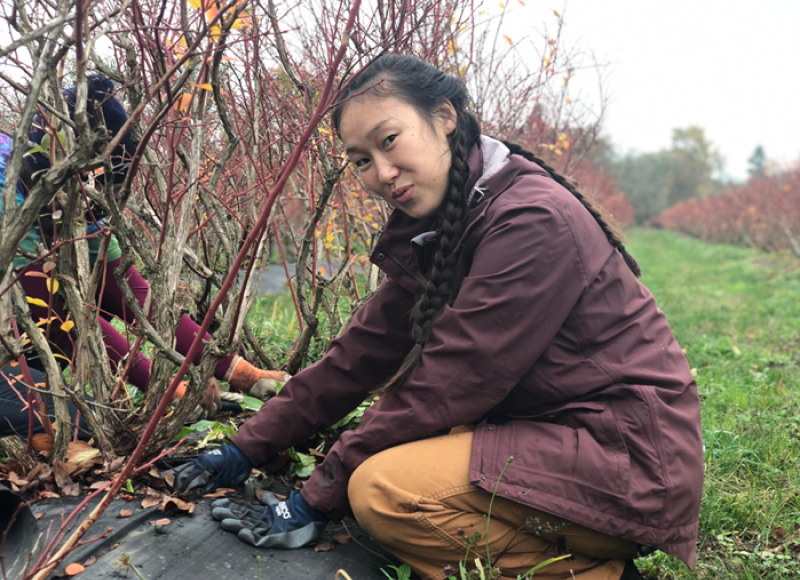
Interavtive effects of fumigation and cover crops on potato production in the Columbia basin - Esther Kim, Soil Science Masters Student
February 14, 2022

Combining Forward and Reverse Genetics Tools for Developing Sustainable Next-Generation Wheat Cultivars - Dr. Vijay Tiwari, University of Maryland Assistant Professor
Bio: https://agnr.umd.edu/about/directory/vijay-tiwari
Seminar recording available to OSU faculty, staff and students only
February 21, 2022`
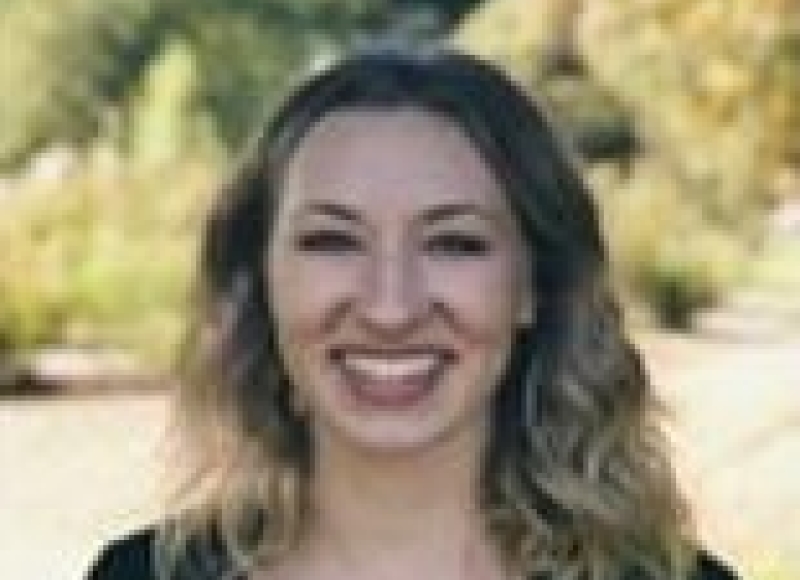
Determining direct and indirect influences of component variables on crimson clover to breed for higher seed yield - Kimber Hale, Crop Science Masters Student
March 7, 2022
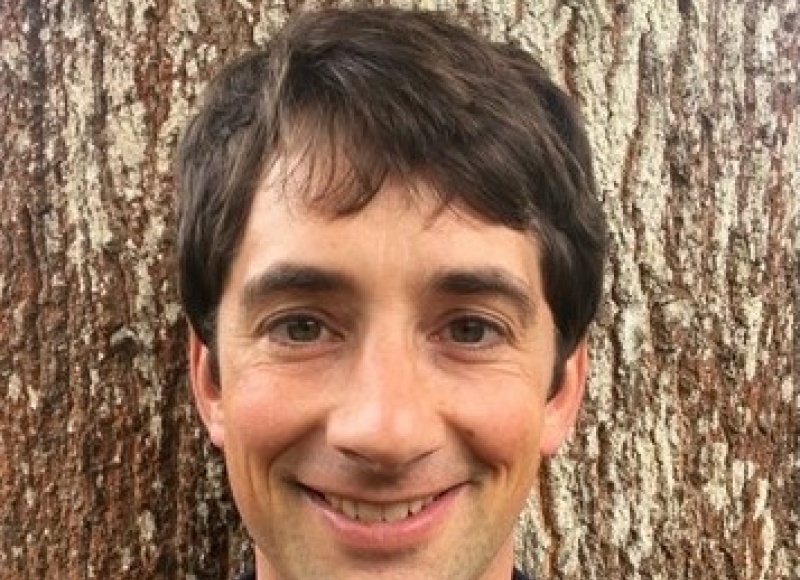
Long-distance Dispersal in Drosophila - Dr. Tim Warren, Department of Botany and Plant Pathology Assistant Professor
April 4, 2022

Goals, strategy, initiatives and educational resources to make progress on diversity, equity and inclusion at OSU - Jeff Kenney, Director, Institutional Education for Diversity, Equity and Inclusion at OSU
April 11, 2022

Climate change and Oregon agriculture: the Oregon Climate Action Plan, the Legislature, and OSU Extension
Megan Kemple and Ashley Rood - Oregon Climate & Agriculture Network
Lauren Gwin - Associate Director, Center for Small Farms & Community Food Systems at OSU
Gordon Jones - Assistant Professor (Practice), Southern Oregon Research and Extension Center
April 18, 2022
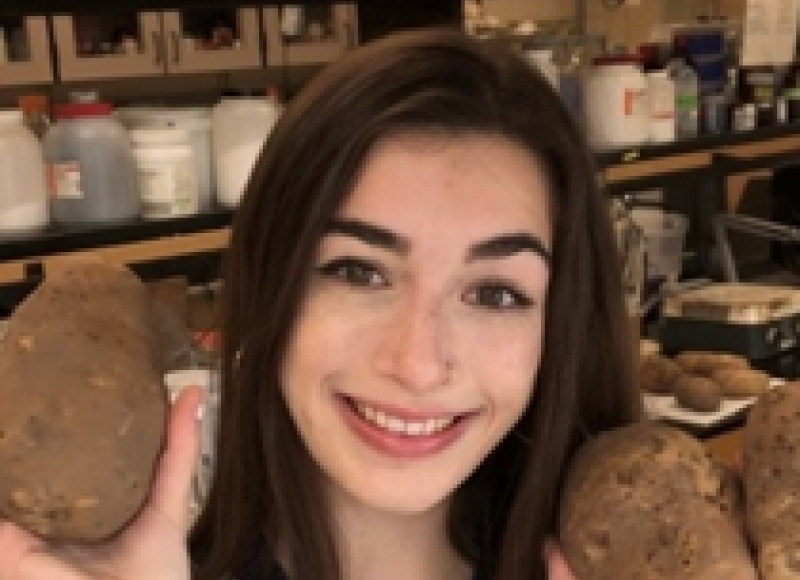
Potato Powdery Scab: Expanding Genomic Resources for the Pathogen and the Host - Abigail Moore, Crop Science Masters Student
May 2, 2022

Storage and deterioration of hemp seed (Cannabis sativa I.) - Grace Fuchs, Crop Science Masters Student
May 2, 2022
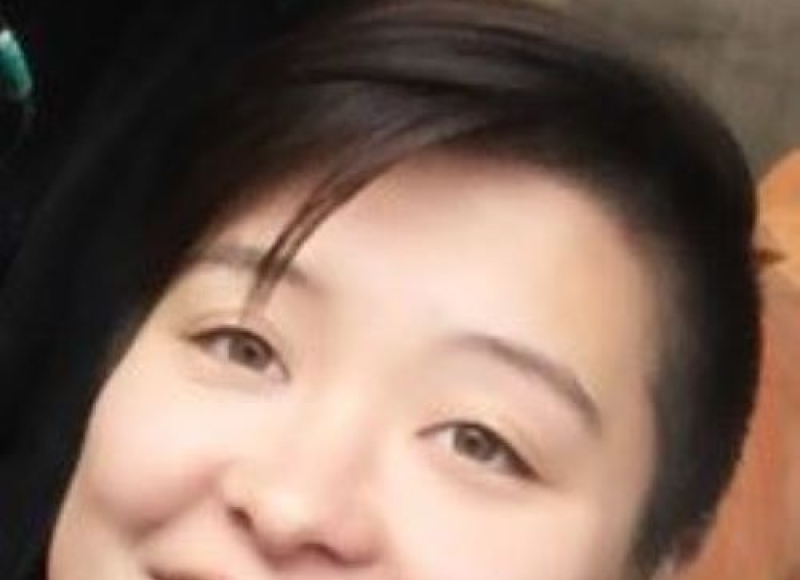
Essential Oils for Sprout Suppression in Stored Potato - Jena Thoma, Crop Science Masters Student
May 9, 2022
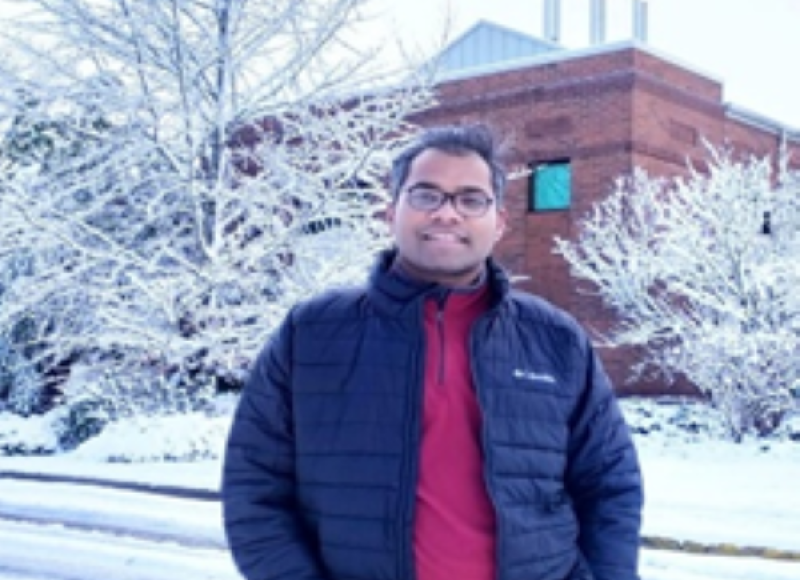
Genome Instability of Potato Dihaploids - Hemant Kardile, Crop Science PhD Student
May 9, 2022

Herbicide resistance in downy brome (Bromus tectorum I.) in eastern Oregon - Victor Ribeiro, Crop Science PhD Student
May 16, 2022
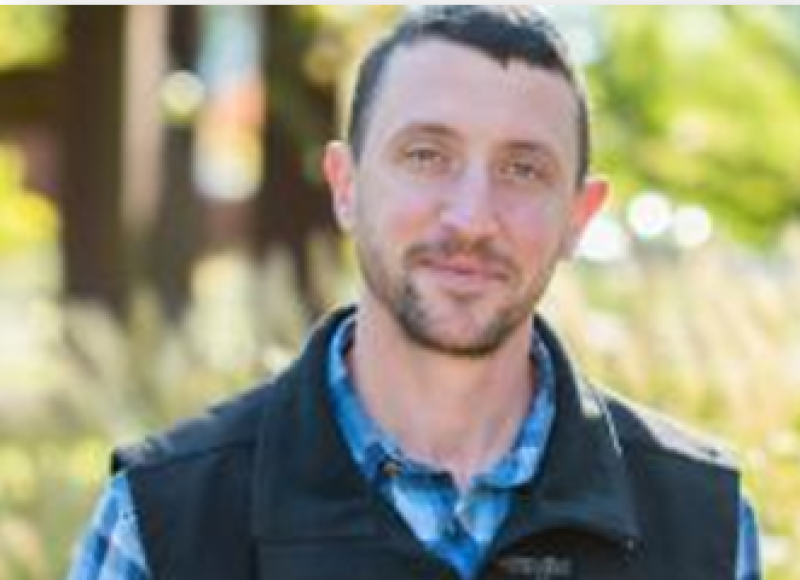
The Oregon Seed Certification Service - Andrew Altishin, Seed Certification Manager
May 23, 2022

How can OSU Seed Lab help researchers and the seed industry - Dr. Sabry Elias, Crop and Soil Science Department Professor, OSU
June 6, 2022
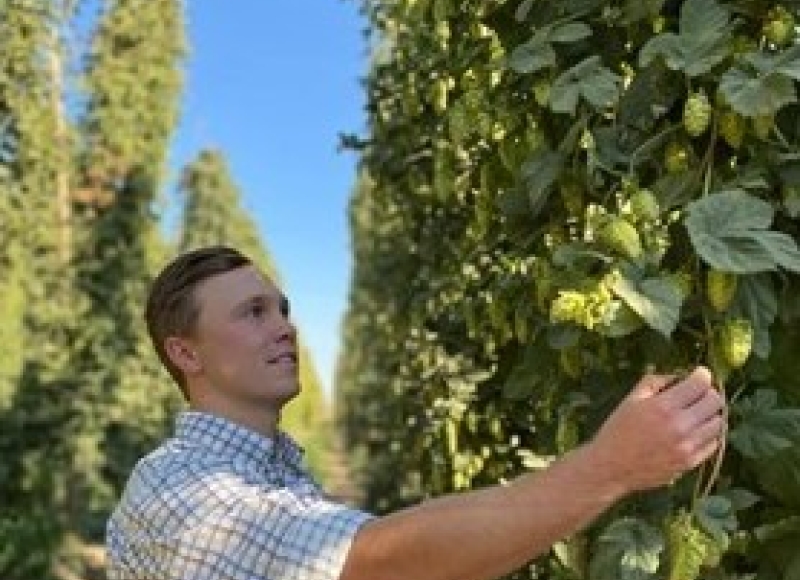
A Re-evaluation of Risk Factors for Overwintering of Powdery Mildew Flag Shoots in Hop - Robert Laurie, Crop Science Masters Student
September 28, 2020
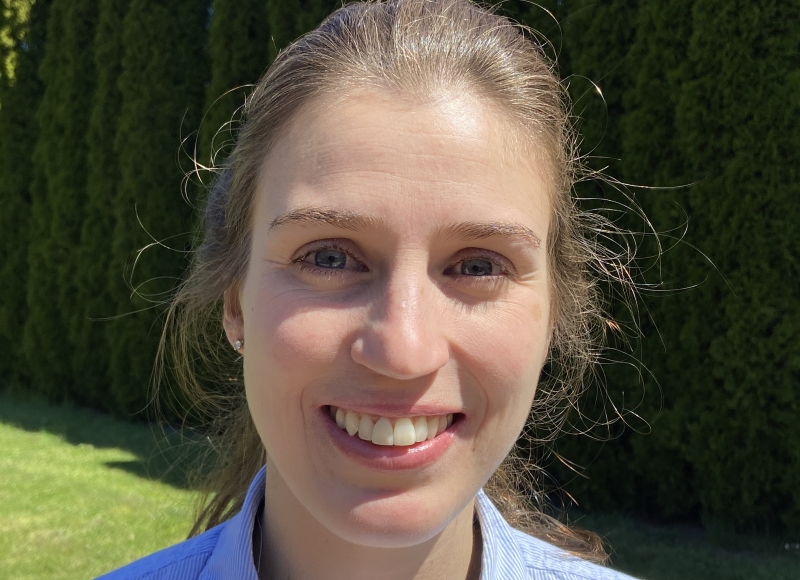
Towards the Sustainable Intensification of Agronomic Crops - Daniela Carrijo, Assistant Professor OSU
October 12, 2020

Constraining the Mechanisms that Influence the Retention and Persistence of Fluorinated Organic Chemicals in Soil - Thomas Wanzek, Soil Science PhD Student
October 19, 2020
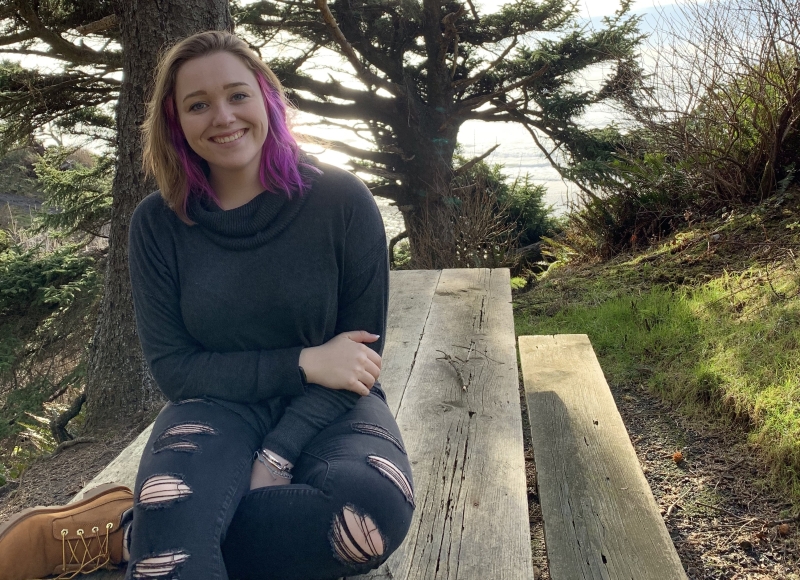
Lithologic Controls on Soil Carbon Partitioning in the Alaskan Coastal Temperate Rainforest - Julia Fleiner, Soil Science Masters Student
October 26, 2020

Soil and Landscape Evolution in Ilha Comprida (Southeastern Brazil) - Pedro Martinez, Soil Science PhD Student
November 2, 2020

Organic Multi-Use Naked Barley: Breeding for the Future - Brigid Meints, Assistant Professor OSU
November 9, 2020

Leveraging Metagenomics to Understand the Microbial World Underfoot - Xinda Lu
November 16, 2020

Challenges and Opportunities for Pest Management in Organic Vs. Conventional Agriculture: A Thrips Perspective - Anitha Chitturi
November 23, 2020

Developing an Integrated Pest Management Program to Control Lygus bugs in the Lower Columbia Basin - Govinda Shrestha
November 30, 2020
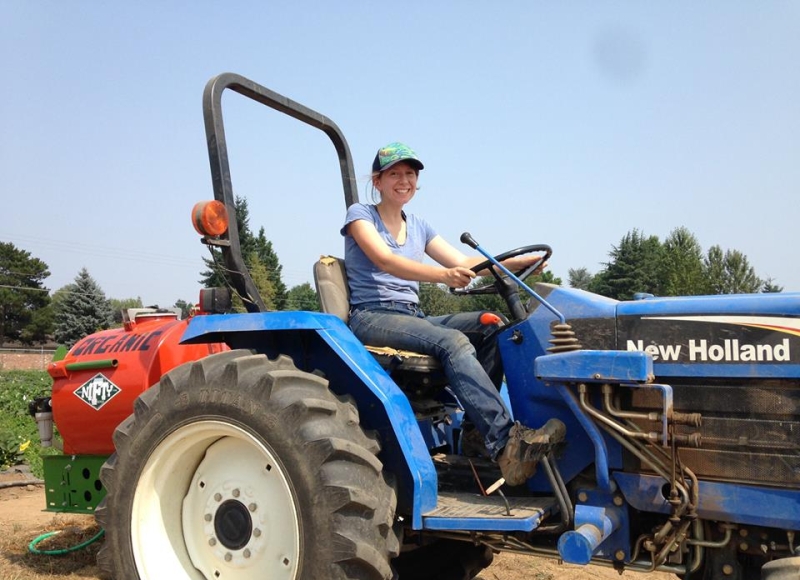
Olive Production in Oregon: Grower Experiences and Evaluation of On-Farm Propagation and Orchard Establishment Practices - Tessa Barker, Crop Science Masters Student
February 28, 2018

Glyphosate and Soil Microbial Communities: Fake News vs. Facts - Dr. Timothy Paulitz, USDA-ARS Wheat Health, Genetics and Quality Research Unit Pullman, WA
Glyphosate (Roundup) is the most widely used herbicide in the world, and is a key component of no-till systems throughout the world, especially in the Pacific Northwest. It is relatively safe, tightly bound to soil particles, is broken down by microbes, and does not have a long residual in the soil. However, there is concern about non-target effects, especially on beneficial bacteria and fungi in the soil.
With a next-generation sequencing approach, Paulitz and colleagues addressed the question: how does glyphosate affect soil microbes in the Pacific Northwest? Bacterial and fungal communities were found to be strongly affected by field location and cropping system, but glyphosate application had only a very minor role in shaping microbial community composition. More bacterial and fungal taxa were stimulated by glyphosate use than were reduced, a response attributed to the presence of dying roots, providing a greenbridge effect.
Dr. Paulitz is a plant pathologist who has spent his career on biological control and and cultural management of soilborne diseases, especially diseases of wheat.
February 23, 2018

The Rodale Center and its Influence on Organic Farming Research - Jeff Moyer, Executive Director of the Rodale Institute
Jeff Moyer is a world renowned authority on organic agriculture. His expertise includes organic crop production systems with a focus on weed management, cover crops, crop rotations, equipment modification and use, and facilities design. Jeff is perhaps most well known for conceptualizing and popularizing the No Till Roller Crimper for use in organic agriculture. In 2011, he wrote Organic No-Till Farming, a publication that has become a resource for farmers throughout the world.
Jeff brings a farmer’s perspective and approach to issues in organic agriculture. He is a past chair of the National Organic Standards Board, a founding board member of Pennsylvania Certified Organic, the Chairman of the Board of Director of The Seed Farm, part of the Green America Non-GMO Working Group, a Project Member of The Noble Foundation’s Soil Renaissance project, and a Board Member of PA Farm Link.
In September 2015, Jeff was appointed as Executive Director of Rodale Institute after spending the last four decades at the Institute, helping countless farmers make the transition from conventional, chemical-based farming to organic methods.
Rodale Institute was founded in 1947 by organic pioneer J.I. Rodale to study the link between healthy soil, healthy food and healthy people. It is committed to groundbreaking research in organic agriculture, advocating for policies that support farmers, and educating people about organic food and farming.
